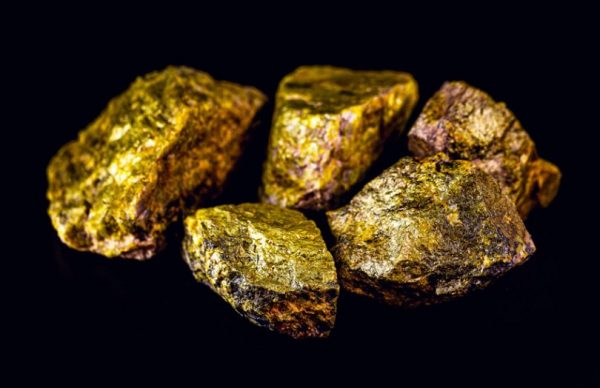As the world is eagerly pushing for Net-Zero Emissions Operations by 2050, an opportunity is rising in nuclear energy. In making a nuclear future, reality will require a lot of uranium thus giving Zimbabwe the chance to participate strongly in a cleaner future due to the mineable Uranium deposits in the country.
Rudairo Mapuranga
It is a fact that the push towards clean energy is overdue or overdone. According to the World Nuclear Association, in 2019, there were 479 plants either being proposed, planned, or under construction. Just as the growing electric vehicle (EV) market will require lithium, making a nuclear future a reality will require Uranium and lots of it. Russia’s invasion of Ukraine in 2022 set off a spike in uranium prices, and the forecast is for those prices to only move higher in the next several years. According to Statista, global demand for uranium is expected to reach 209 million pounds by 2035. To achieve that goal, new uranium assets will have to be discovered. Zimbabwe with its uranium deposits will therefore have a chance to tap into the nuclear future.
According to renowned geologist and gemstone expert Mr Jean Rheiner, there is a potential for Zimbabwe to start extracting uranium resources provided government policies are favourable. He said his company discovered a good deposit of uranium which needs an investment of US$100 million to be operational.
“I had been working on Uranium in the early 1980s and discovered a good small deposit in the North of the country. By then prices collapsed and my Company pulled out. In the last few years some companies (Canadian and Chinese did some work on those projects but pulled out too. The price of Uranium is still low and the economic/ political situation is not favourable.
Those deposits are still around and will probably need a US$ 100 million investment to be operational,” Rheiner said.
Speaking to Mining Zimbabwe mining metallurgical Consultant Sharon Tsuro said although there is a need to relax policy on the extraction of the resource it should however be more inclined to limit the exportation of raw forms of the commodity.
She said the country should find a way to take advantage of the clean energy prospects by utilizing the current resources because as the world progresses cleaner resources might be discovered in future.
“Policy should be more inclined to limit the exportation of raw forms of the commodity from exploration to fully functional operations. Parties interested should set up laboratories in Zimbabwe and carry out all activities here to improve infrastructure as well as promote employment,” Tsuro said.
Mineral resource governance expert Mr Tapuwa O’bren Nhachi said Zimbabwe should learn from great lessons in mineral resource governance. He stated that the country could benefit from its uranium exports by developing a uranium mining industry, partnering with other countries, ensuring equitable benefits, and avoiding corruption.
“By developing a uranium mining industry the country will have a cooperative advantage that most uranium-gifted countries have. The uranium mining industry will or should sustainably extract and process the uranium reserves. If done properly this could create jobs and generate revenue for the country.
“To gain experience and to produce the intended results Zimbabwe could partner with other countries to develop its uranium industry. For example, the country could work with countries that have expertise in nuclear technology to develop its uranium reserves.
“Equitable distribution of resources and revenue will be key. Zimbabwe should ensure that the benefits of uranium mining are distributed equitably. This could involve working with local communities to ensure that they benefit from the industry and that their social economic rights are achieved and respected.
“However the Elephant in the room is Corruption. The responsible authorities should take necessary and sustainable steps to avoid corruption in the uranium industry. The major reason why Zim never realised much or anything tangible from the diamond discovery is corrupt activities.
“The lessons from the diamond and gold mining value chain can be used as a not to do. To assist with an effective anti-corruption crusade Zim could involve implementing transparency measures and working with international organizations to ensure that the industry is well-regulated.
“It’s unfortunate that any mineral extraction project is highly capital intensive and this can be a burden to both investors and host countries if a win-win situation can not be reached. This is not new and Zimbabwe could invest in exploration to identify new uranium deposits. This could involve working with international partners to bring in expertise and technology and the finances required for the benefit of the people of Zimbabwe.
Develop infrastructure: Zimbabwe could develop infrastructure to support the uranium industry.
Since this is for the international market Zimbabwe should strategically market its uranium internationally to attract buyers. This can be done through internationally tested honest consultancies. A lot should be involved including but not limited to attending trade shows and conferences to showcase the country’s uranium reserves,” he added.
“The most important but most neglected aspect is the environmental and social responsibility that miners and government should the mining must be conducted in a sustainable, environmentally and socially responsible manner. This should involve implementing regulations to protect the environment and working with local communities to ensure that their rights are respected,” he concluded.
.png)




